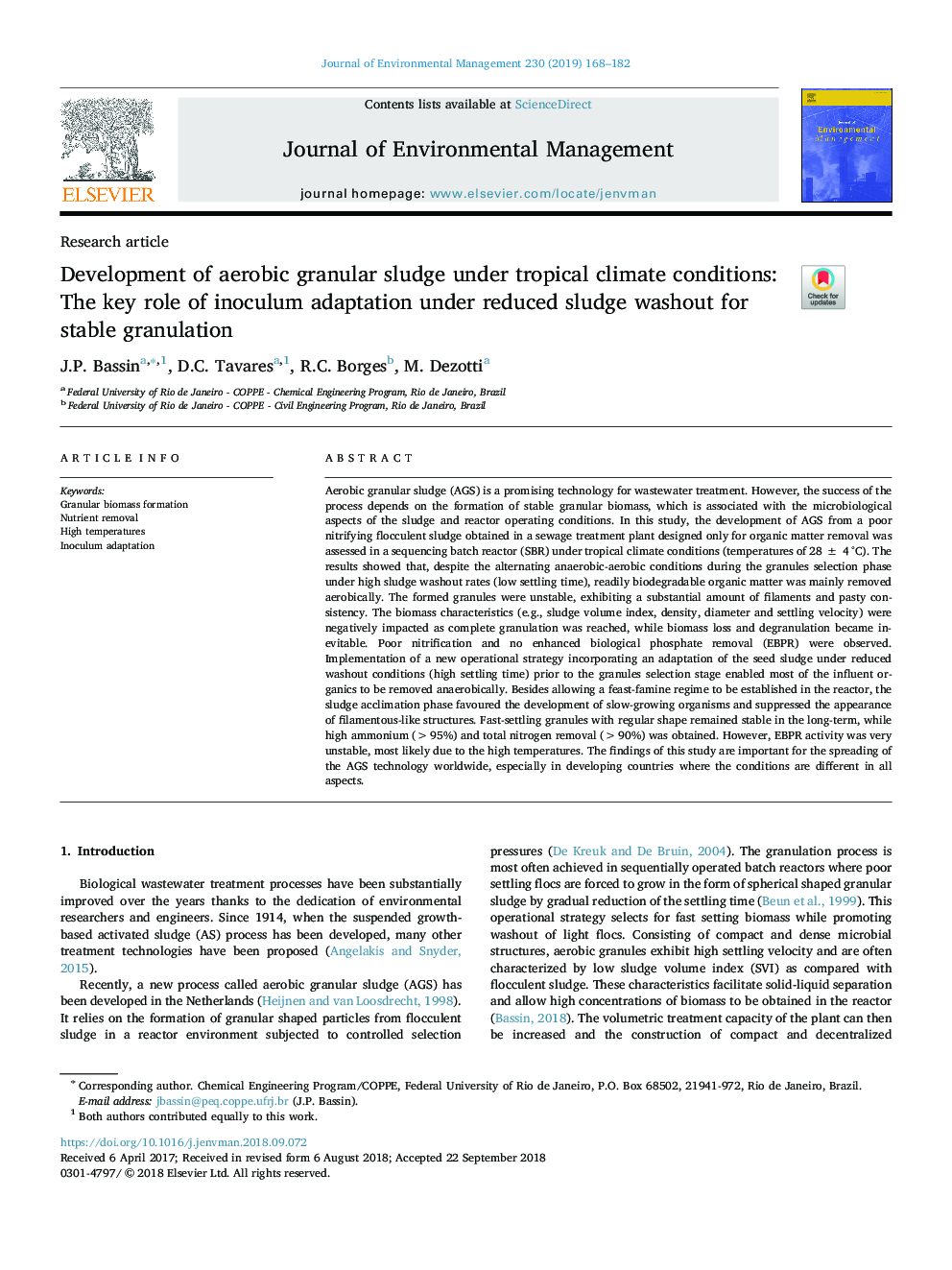| کد مقاله | کد نشریه | سال انتشار | مقاله انگلیسی | نسخه تمام متن |
|---|---|---|---|---|
| 11023232 | 1701321 | 2019 | 15 صفحه PDF | دانلود رایگان |
عنوان انگلیسی مقاله ISI
Development of aerobic granular sludge under tropical climate conditions: The key role of inoculum adaptation under reduced sludge washout for stable granulation
ترجمه فارسی عنوان
توسعه لجن گرانول هوازی تحت شرایط آب و هوای گرمسیری: نقش کلید انطباق علف هرز در کاهش لجن خالص برای دانه بندی پایدار
دانلود مقاله + سفارش ترجمه
دانلود مقاله ISI انگلیسی
رایگان برای ایرانیان
کلمات کلیدی
تشکیل زیست توده گرانول، حذف مواد مغذی، درجه حرارت بالا، سازگاری تلقیح
موضوعات مرتبط
مهندسی و علوم پایه
مهندسی انرژی
انرژی های تجدید پذیر، توسعه پایدار و محیط زیست
چکیده انگلیسی
Aerobic granular sludge (AGS) is a promising technology for wastewater treatment. However, the success of the process depends on the formation of stable granular biomass, which is associated with the microbiological aspects of the sludge and reactor operating conditions. In this study, the development of AGS from a poor nitrifying flocculent sludge obtained in a sewage treatment plant designed only for organic matter removal was assessed in a sequencing batch reactor (SBR) under tropical climate conditions (temperatures of 28â¯Â±â¯4â¯Â°C). The results showed that, despite the alternating anaerobic-aerobic conditions during the granules selection phase under high sludge washout rates (low settling time), readily biodegradable organic matter was mainly removed aerobically. The formed granules were unstable, exhibiting a substantial amount of filaments and pasty consistency. The biomass characteristics (e.g., sludge volume index, density, diameter and settling velocity) were negatively impacted as complete granulation was reached, while biomass loss and degranulation became inevitable. Poor nitrification and no enhanced biological phosphate removal (EBPR) were observed. Implementation of a new operational strategy incorporating an adaptation of the seed sludge under reduced washout conditions (high settling time) prior to the granules selection stage enabled most of the influent organics to be removed anaerobically. Besides allowing a feast-famine regime to be established in the reactor, the sludge acclimation phase favoured the development of slow-growing organisms and suppressed the appearance of filamentous-like structures. Fast-settling granules with regular shape remained stable in the long-term, while high ammonium (>95%) and total nitrogen removal (>90%) was obtained. However, EBPR activity was very unstable, most likely due to the high temperatures. The findings of this study are important for the spreading of the AGS technology worldwide, especially in developing countries where the conditions are different in all aspects.
ناشر
Database: Elsevier - ScienceDirect (ساینس دایرکت)
Journal: Journal of Environmental Management - Volume 230, 15 January 2019, Pages 168-182
Journal: Journal of Environmental Management - Volume 230, 15 January 2019, Pages 168-182
نویسندگان
J.P. Bassin, D.C. Tavares, R.C. Borges, M. Dezotti,
